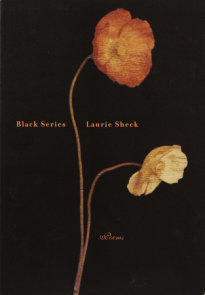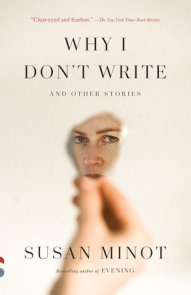READERS GUIDE
Questions and Topics for Discussion
1. One of Father Joe’s recurrent themes is to see selfishness as a core modern failing. He “diagnoses” Tony Hendra’s sin not as adultery but as selfishness (p. 58), while later he speaks of possessions as being “extensions of the self” and helping to create a “prison of self” (p. 120). In what way is Hendra’s sin selfishness, and how is it linked to conspicuous consumption? And what is meant by Hendra’s conclusion that “Shop-till-you-drop and true love may well be mutually exclusive” (p. 121)?
2. During their first days together, Hendra says that Father Joe’s version of God fits better into his fifties-shaped notion of “she” rather than “he” (p. 67). In the epilogue, Hendra says of Father Joe’s ministry, “to some he was a father, to some a mother” (p. 270). Are these two things connected? If you are a believer, do you think of God in a gender-specific way? If not, would you be more comfortable with the notion of deity if it were usual to refer not to “God the Father” but to “God the Mother”?
3. Hendra writes that in Europe the Benedictine tradition is “so deep you never heard the stone touch bottom” (p. 77). Later he refers to Father Joe as “thriving after fifteen hundred years of other Father Joes” and expresses excitement at “the discovery of changelessness” (p. 238). A little later he asserts that humanity needs changelessness as well as change. Is changelessness valuable? Is it possible in the modern world? What are the drawbacks, if any, of constant change?
4. Hendra and Father Joe discuss Macbethand depictions of Christ’s Passion and Crucifixion, noting that evil acts and people often seem to inspire writers and artists to great art (p. 110). Is this, as Hendra worries, “celebrating” evil? If not, how does art relate to the moral ambiguity it often depicts? Does it transform it? Does it have a redemptive function? Discuss the connection between this and the recurrent attempts in many societies, past and present, to insist that art only depict “good” acts and people.
5. One aspect of Father Joe’s Benedictine background that Hendra is attracted to is its ancient historical roots, which can also be expressed as its deeply conservative tradition. Another thing that Hendra admires about Father Joe, however, is that he owns nothing and lives communally. Hendra even says the St. Benedict’s Rule concerning possessions and communal living “sounds a lot like communism” (p. 120). Is it possible to reconcile the deeply conservative side of Benedictine tradition with its subversive attitude toward a modern consumer society? Does this in any way mirror our current political notions of right and left? How do you think Father Joe would vote in present-day America?
6. Father Joe says that sex is “almost like a sacrament” (p. 126). He also says we must “take the fear out of sex.” What does he mean by these statements? Do you find Father Joe’s attitude towards sex surprising? Inadequate? Dangerous? Illuminating? How could a man who has spent all his life celibate and in a cloister have such definite opinions on the subject?
7. At several points in the book, the supposed dichotomy between sacred matters and humor arises. Hendra says that Father Joe was the only priest who’d ever made him laugh (p. 199). Father Joe responds that we should laugh at priests more often, and that if God is happiness, “God must be laughter too.” Discuss what Father Joe means by this insight. Do you see humor and laughter having a place in sacred matters, or should they always be dealt with seriously?
8. Ben explains to Hendra the Benedictine concept of work summed up in the Latin phrase Laborare est orare: “To work is to pray” (p. 45). Later Father Joe expands on this, saying that any kind of work done well, with gratitude and enjoyment, for others first and yourself second, “binds us together and therefore to God” (p. 202). Is it possible in the modern world to do work to Father Joe’s standards? Does he mean that work is sacred? Could work done to Father Joe’s standards have a positive effect on a company? On society in general?
9. Hendra says that Father Joe was, “to me and for the moment, God. God the Other” (p. 100). Later, although he no longer believes in God, Hendra refers to Father Joe as “a body God would from time to time inhabit” (p. 229). In the epilogue, Hendra writes that God is unimaginable without a human body as a medium, something “that has touched the inconceivable” (p. 266). How are these perceptions connected? Does Hendra really mean that Father Joe was God?
10. The word saintoccurs several times in the book. In the prologue, Hendra defines a saint as someone who practices the “keystone human virtue of humility” (p. 4). Hendra later describes Father Joe as “a commonsense saint, a saint of what could be done, not what should be done, a practical saint, a saint of imperfection” (p. 203). Does this mean that Father Joe had lower standards than other spiritual guides? Do you find the term saint useful in describing Father Joe? Have you known any people you think were saints?






















